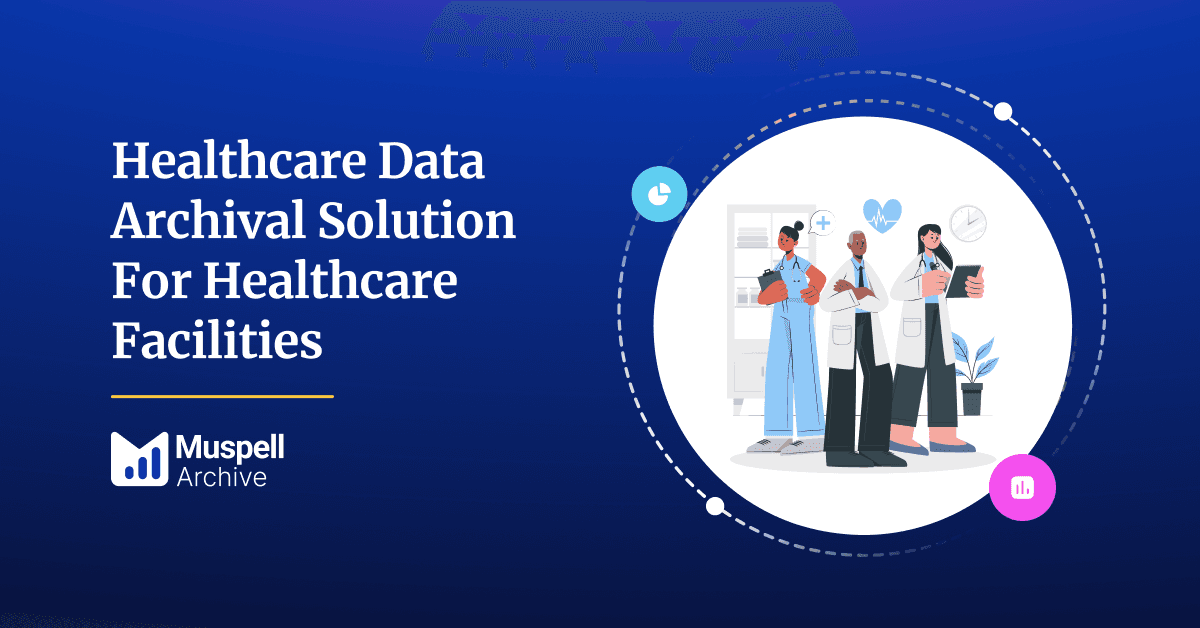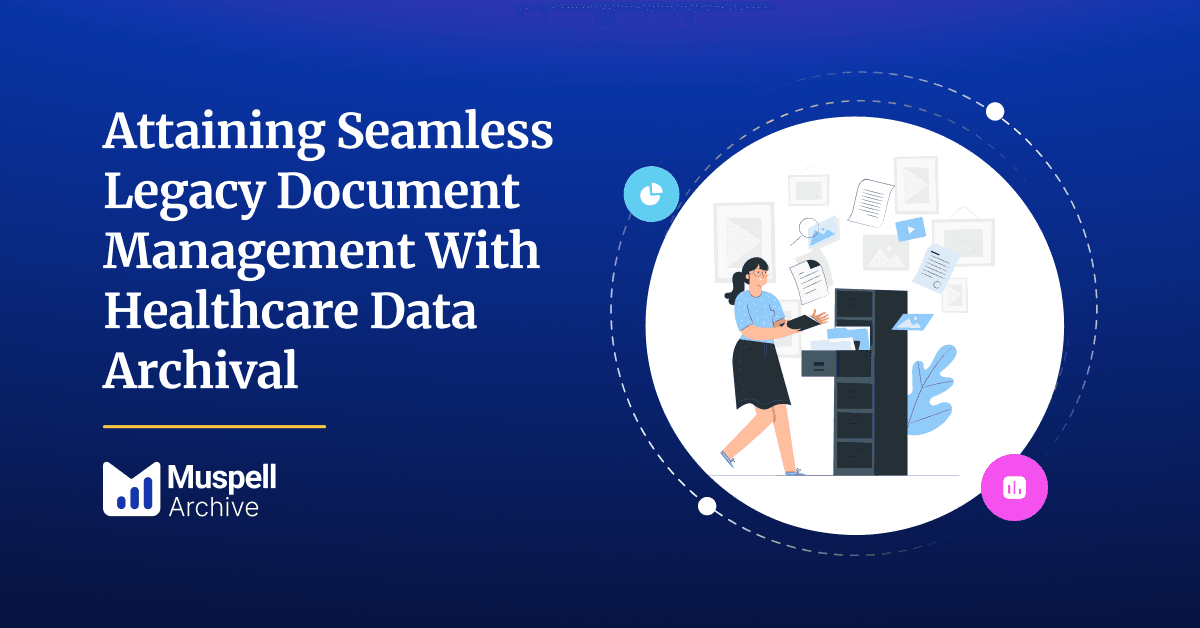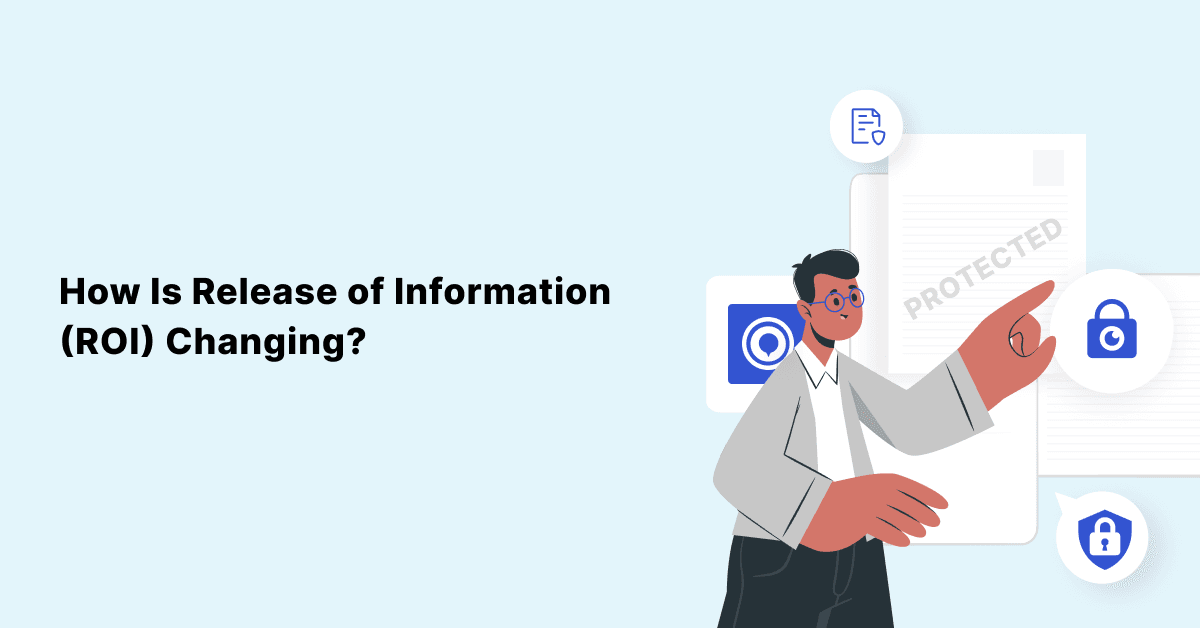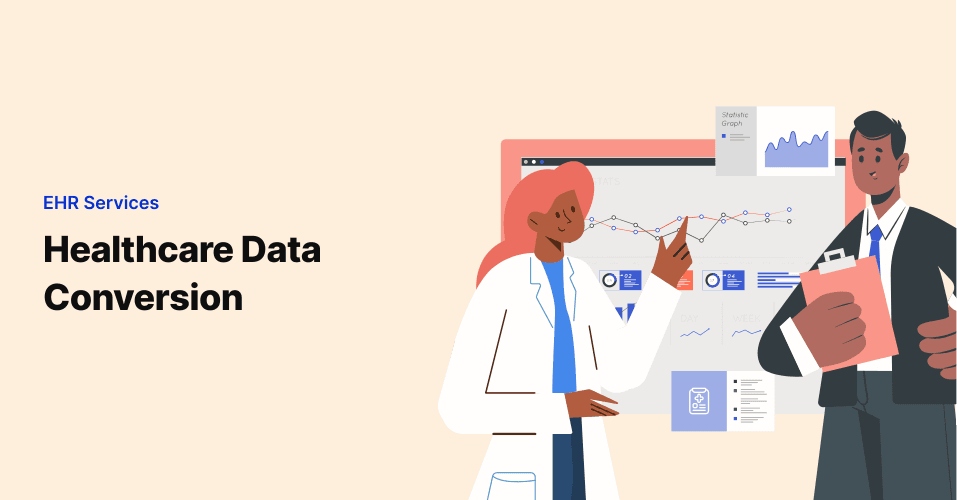
Healthcare Data Archiving Solutions - An Elegant Alternative to Legacy Healthcare Applications
The healthcare sector is evolving into a competitive arena where the accumulation of Protected Health …

At its core, healthcare data archival solutions serve as secure repositories for legacy electronic health record (EHR) data. Implementing such solutions allows healthcare organizations to retire outdated healthcare applications, which would otherwise require substantial expenses to upkeep.
A 2023 HIMSS survey shows that 73% of healthcare institutions use legacy systems despite the associated high operational costs. Considering that a typical healthcare facility in the US generates nearly 50 petabytes of data annually, integrating healthcare data archival solutions into legacy data management strategies becomes essential for effective data governance and cost optimization.
However, despite selecting a robust healthcare data archival solution, numerous healthcare facilities encounter obstacles, with one of the most prevalent being the presence of extensive legacy data in paper format that still needs to be investigated.
In such situations, having an intuitive and user-friendly document upload feature becomes crucial for facilitating the seamless transfer and management of legacy healthcare data. This blog post delves into the significance of Muspell Archive's document upload feature and its pivotal role in transferring legacy data effectively into the archive, even after the formal archival project is complete and the legacy system is retired.
Muspell Archive allows users to upload documents to any searchable patient within any source system at the patient level. In simple terms, the archival solution allows care delivery and Health Information Management (HIM) teams to upload the proper documents to the right patient profile as should have been completed in the legacy system prior to its decommission. Once the user completes the metadata (such as document type, document name, document date, etc), they can upload multiple documents simultaneously for various purposes, including record correction, post-data archival upload, and overall management of legacy healthcare data. Here are further insights into this feature:
Dedicated Document Location: Muspell Archive enables healthcare organizations to leverage a dedicated document location, storing uploaded documents in a unified, easily identifiable screen. This feature ensures that users can swiftly locate and access the necessary documents, saving valuable time and improving workflow efficiency as the “late” documents are located exactly where they should have been found in the first place. Muspell Archive corrects the issue of multiple archival documents being housed in separate systems based on when they were identified.
Document Edit: Flexibility is critical in modern healthcare workflows, and Muspell Archive delivers plenty of it with its document edit feature. Authorized users can modify document metadata, allowing seamless updates and customization for the late addition documents. Whether updating patient information or refining document details, this feature empowers users to maintain accuracy and relevance within their archival system.
Document Deletion: Managing document retention is crucial for healthcare organizations, especially when dealing with legacy healthcare data. With Muspell Archive, authorized users can securely remove documents that were uploaded after the fact whenever necessary. This feature ensures compliance with data privacy regulations and empowers organizations to maintain a lean and organized document repository.
Muspell Archive's document upload capabilities, coupled with its strong and easy-to-use interface, guarantee efficient digitization of legacy paper documents for care delivery and HIM teams. It also ensures that the patient health data hosted in the archive is complete, organized and dependable. With Muspell Archive, healthcare organizations can unlock new levels of efficiency, control, and compliance in their data management practices.
Explore Muspell Archive and talk to our experts today!
Join over 3,200 subscribers and keep up-to-date with the latest innovations & best practices in Healthcare IT.

The healthcare sector is evolving into a competitive arena where the accumulation of Protected Health …

Are you curious about the changes happening in healthcare’s Release of Information (ROI) process?
Gone are the …

Health systems migrating from a legacy records solution to Epic EHR will no doubt reap significant benefits in …